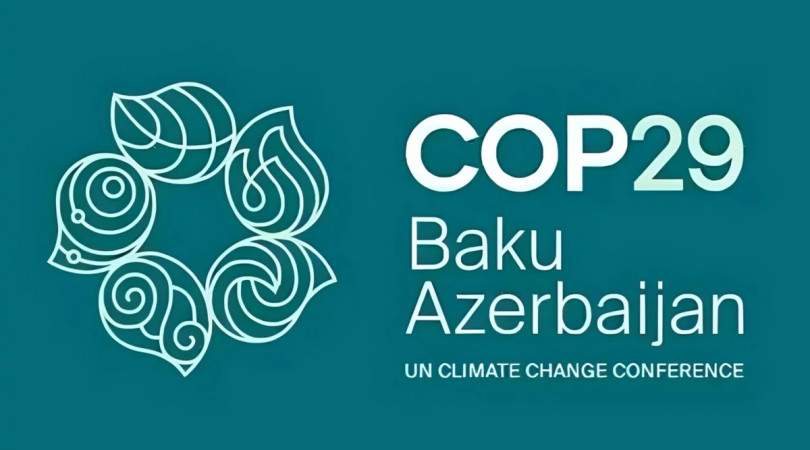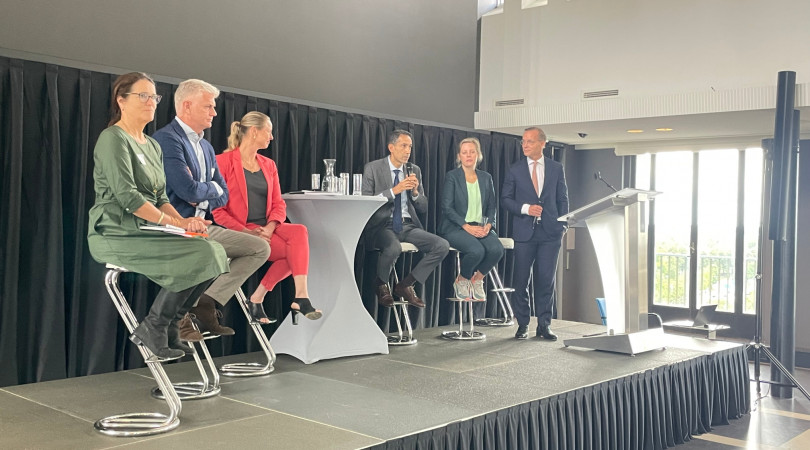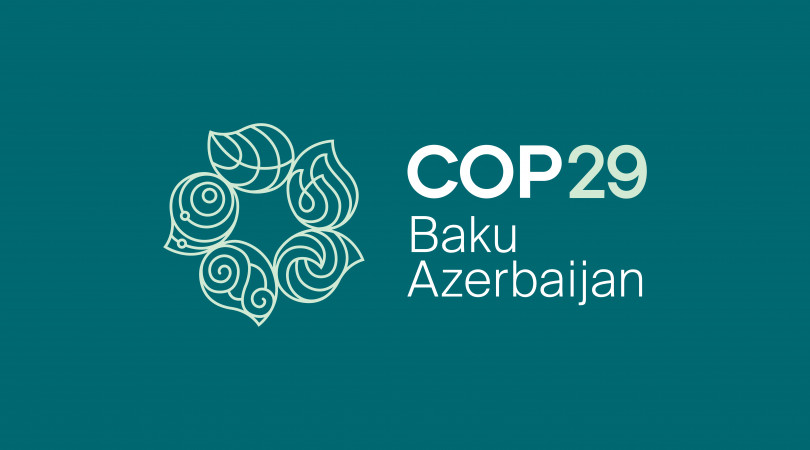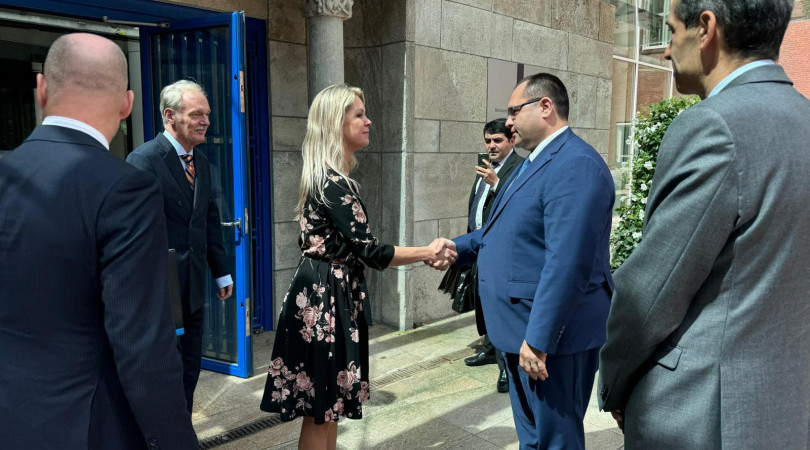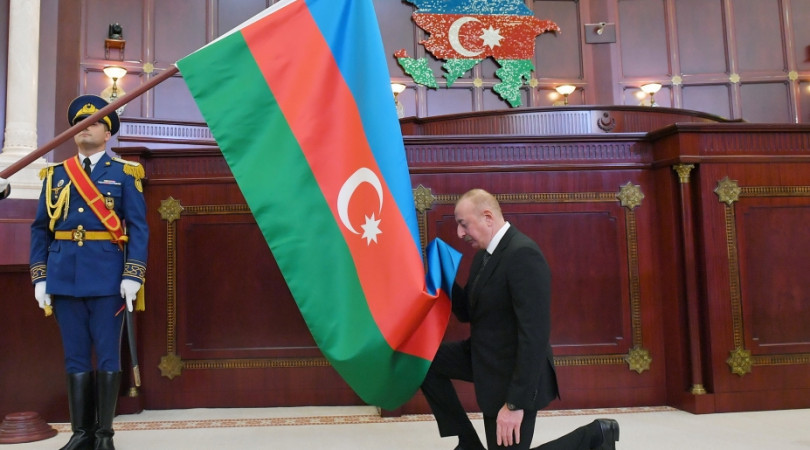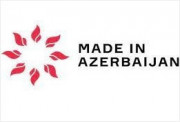Statement of the Milli Majlis of the Republic of Azerbaijan in connection to the anniversary of the commencement of the Patriotic War of the Azerbaijani people
STATEMENT OF THE MILLI MAJLIS OF THE REPUBLIC OF AZERBAIJAN
In connection to the anniversary of the commencement of the Patriotic War of the Azerbaijani people
One year has passed since the beginning of the 44-day Patriotic War, which ensured the end of the Armenian occupation over the internationally recognized territories of the Republic of Azerbaijan and the restoration of the territorial integrity of our state. The liberation of Karabakh, the ancient historical land of Azerbaijan, has put an end to the series of territorial losses, ethnic cleansing and deportations suffered by our people for almost the entirety of the last two centuries and launched a new era in our history.
As is known, the baseless territorial claims and aggressive policy brought forth by the Republic of Armenia, which are not grounded on any historical and legal facts, led to 20% of the Republic of Azerbaijan’s territories to be occupied since the early 1990s. One million Azerbaijanis were expelled from their ancestral homes because of the cruel ethnic cleansing being carried out in Armenia and the occupied territories of Azerbaijan. Criminal acts, stemming from national hatred and enmity, were perpetrated against Azerbaijanis, and one of the most terrible tragedies of the 20th century - the Khojaly genocide – was committed along with a series of other acts of genocide.
During the first Karabakh war, which lasted for about four years, around 20,000 Azerbaijanis were killed, and more than 50,000 people were wounded or maimed by the Armenian armed forces. 4750 people were captured, missing, and taken hostage. 877 cities, villages and settlements were looted, destroyed, and burned. Azerbaijan's historical, national, and cultural heritage in the occupied territories was ruthlessly destroyed. The UN Security Council Resolutions 822, 853, 874 and 884 adopted in 1993, the UN General Assembly Resolution 62/243 adopted in 2008, as well as acts by several other international organizations, affirmed the territorial integrity and sovereignty of the Republic of Azerbaijan, demanded the immediate and unconditional withdrawal of the Armenian armed forces from the occupied territories, and provided for the right of the displaced persons to return to their homelands. The heads of state of the OSCE Minsk Group co-chair states, namely the United States, Russia, and France, who had been mediating the settlement of the conflict, had repeatedly stated that the status quo is unacceptable, must be changed and the issue must be resolved soon. Unfortunately, due to Armenia's non-constructive and disruptive position, the efforts of the Minsk Group and other such international organizations to resolve the conflict had not yielded any results. Moreover, with the support of foreign forces that have no interest in establishing peace and stability in the region, the Republic of Armenia had made constant efforts to disrupt the negotiation process and perpetuate its occupation of foreign lands.
Taking advantage of the indecisiveness of international organizations, the Armenian side attacked the front lines of the Azerbaijani Armed Forces in April 2016, as well as July and August 2020, and fired on civilians with large artillery, rocket launcher, armoured vehicles, and shooter arms. The measures taken by the Republic of Azerbaijan in response to these provocations resulted in heavy losses of manpower and military equipment in the Armenian armed forces. On September 27, 2020, after yet another provocation, the Republic of Azerbaijan exercised its right to self-defence granted by the UN Charter and launched a counter-offensive to force the aggressor into peace and end the occupation of Azerbaijani lands. Since the very first days, under the leadership of Ilham Aliyev, the President of the Republic of Azerbaijan and Supreme Commander-in-Chief of the Armed Forces, the Azerbaijani Armed Forces had severely defeated the Armenian armed forces.
Helpless on the battlefield, the Armenian armed forces committed horrible crimes against the civilian population in gross violation of the norms and principles of international law, including that of the Geneva Conventions of August 12, 1949. Attacks on the cities of Ganja, Mingachevir, Barda, Tartar, Gabala, Siyazan, Khizi and other settlements, located far from the front line with ballistic missiles, as well as prohibited white phosphorus and cassette shells, are war crimes and crimes against humanity. 227 missliles and about 30,000 shells were fired at civilian settlements, killing more than 100 civilians, including 11 children, and injuring more than 450 people. 12,000 civil infrastructure facilities in the territory of Azerbaijan, including individual civilian houses and apartment buildings, were destroyed or severely damaged.
Nevertheless, these bloody attacks and atrocities did not deter Azerbaijan from its goal. During those tough days, all our people, including the residents of peaceful cities who were exposed to acts of terrorism conducted by the Armenian state, united even more closely around the Supreme Commander-in-Chief.
As a result of the operations carried out by the Azerbaijani Armed Forces to prevent further war crimes and crimes against humanity, the occupying forces had suffered crushing blows, thousands of their manpower were lost, and a large portion of their military equipment and weapons were destroyed or taken as trophies. A considerable part of the occupied territories of our country, including Fizuli, Jabrayil, Zangilan, Gubadli regions, the city of Shusha, Sugovushan and Hadrut settlements – about 300 settlements in total - were liberated. The brilliant and magnificent victory on the battlefield was further reinforced through political success. The trilateral agreement signed on November 10, 2020 by the Presidents of Azerbaijan and Russia, and the Prime Minister of Armenia, put an end to more than 30 years of conflict and introduced a new format of activities aimed at the future development of the South Caucasus. In accordance with the provisions of the agreement, Kalbajar, Aghdam and Lachin districts were peacefully returned to the Republic of Azerbaijan.
By effectively ensuring the implementation of documents by the UN and other international organizations on the conflict, Azerbaijan has achieved the restoration of its territorial integrity and created a new geopolitical reality in the South Caucasus. A new era has begun in the life of Karabakh, the ancient and historical land of Azerbaijan - the era of restoration and construction. Projects are being implemented to restore settlements in the lands vandalized during the 30 years of occupation: infrastructure facilities are being set up, airports, roads, bridges, tunnels, and other facilities are being built, electricity and water lines are being laid out. Conditions are created for IDPs to return to their home lands as soon as possible.
Unfortunately, at a time when Azerbaijan is taking the necessary steps to establish a peaceful life in the region and ensure lasting concord, some circles in Armenia and the forces supporting them are making revanchist plans to compensate for the military defeat, re-occupy Azerbaijani lands and drag the region into disaster once again. After the end of the war, the authorities of the Republic of Azerbaijan repeatedly appealed to the Republic of Armenia to sign a major peace agreement on the condition of mutual recognition of its territorial integrity. However, the Armenian side avoided accepting the peace proposals under various pretexts.
Making use of the absence of delimitation and demarcation of the state border with Azerbaijan, the Republic of Armenia commits incitements at the border, organizes the transportation of militants and military cargo through the Lachin corridor which is temporarily under the responsibility of Russian peacekeeping forces, regularly commits provocations against the Azerbaijani Armed Forces, refers to the provocateurs captured in the territory of Azerbaijan after the end of the war as prisoners of war, and conducts a smear campaign against our country. The intention to restore the destroyed Armenian army and equip the aggressor state with modern weapons and military equipment has been declared. Attempts are being made to revive separatism in Karabakh. Contrary to the provisions of the trilateral agreement, the Armenian armed forces have not yet been completely withdrawn from the territory of Karabakh. The Armenian side has planted hundreds of thousands of anti-tank and anti-personnel mines in the occupied territories of Azerbaijan, and only provided a map of a small part of the mined areas after persistent demands. However, it turned out that the map provided precisely reflected only around 25 percent of the actual situation. Refusal to provide accurate maps of all mined areas is one of the many war crimes committed by Armenia. In the post-war period, 159 people, including civilians, were killed or wounded by landmines planted by the Armenian armed forces.
Of particular concern is the reluctance of certain states to come to terms with the end of the conflict, which they have turned into a means of pursuing their own interests. Through their statements and actions, these states, in fact, hinder the establishment of peace and stability in the region. Attempts are being made to restore the ineffective activity of the OSCE Minsk Group, and claims are being brought forth to give a separate status to the territory in Karabakh inhabited by some 25 thousand Armenians.
It should not be forgotten that the Republic of Azerbaijan had resolved the conflict on its own and, in fact, there was no need for mediation efforts in the preceding format. On the other hand, Azerbaijan is a multinational unitary state with a long tradition of tolerance, where representatives of all ethnic groups live in equality and mutual respect. This country is the common and indivisible homeland for all Azerbaijani citizens. Armenians living in Karabakh have the same rights and freedoms as other citizens of Azerbaijan and granting them some special status cannot be a subject for any discussion.
The Milli Majlis of the Republic of Azerbaijan expresses its hopes that once the long-term conflict is over, the historical opportunity to establish lasting peace and civil interstate relations between the Republic of Azerbaijan and Republic of Armenia and to ensure the peaceful coexistence of the Azerbaijani and Armenian peoples, will be well seized upon. The Republic of Azerbaijan will continue to take all necessary measures to turn the region into a place of peace, stability, and development in which representatives of all ethnic groups live in prosperity.

